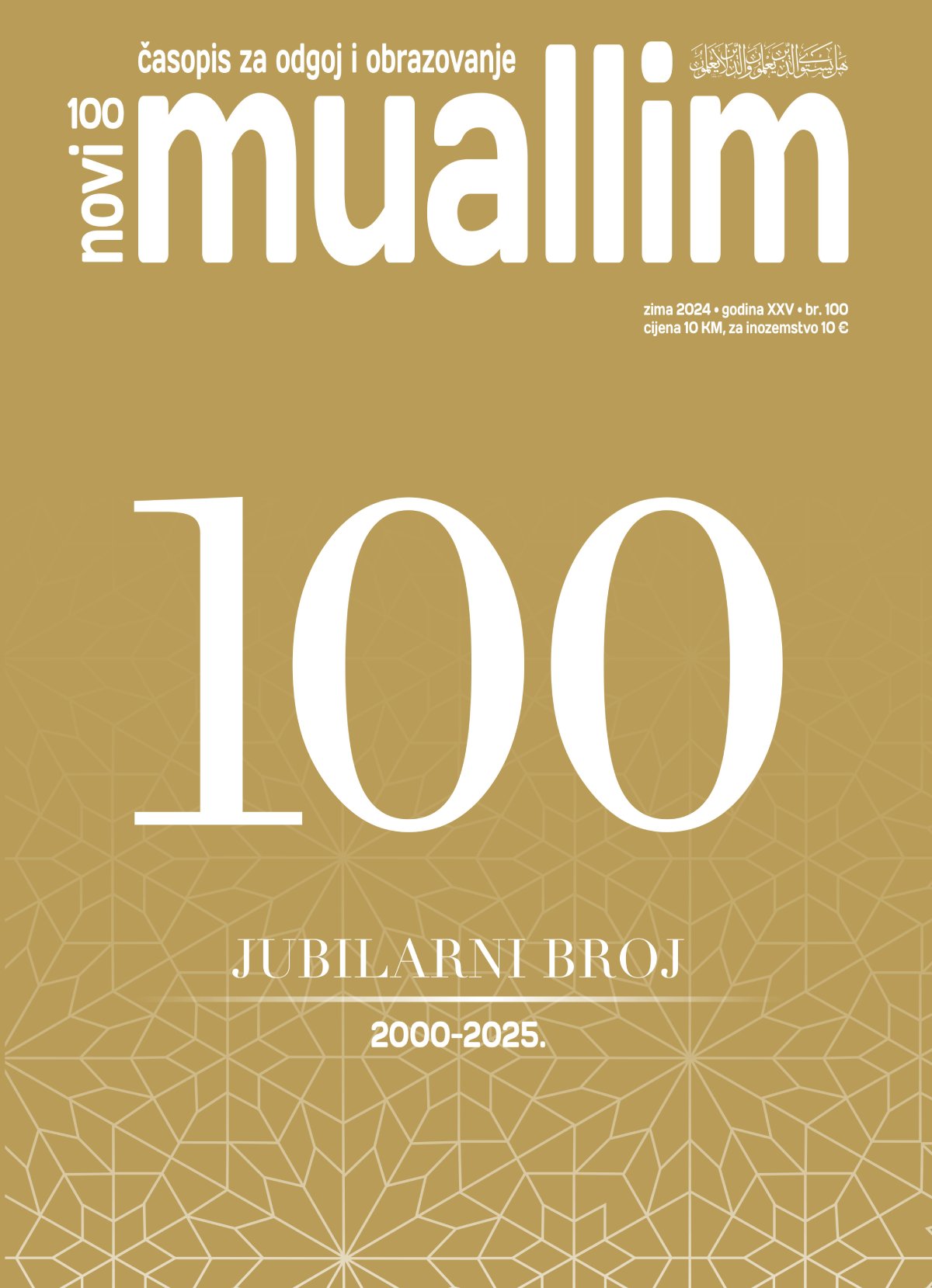Profesionalna recepcija Novog muallima kod imama i vjeroučitelja
DOI:
https://doi.org/10.26340/muallim.v25i100.2119Ključne riječi:
Novi muallim, evaluacija časopisa, kritička analiza, opća očekivanja, stručna pomoć i podrškaSažetak
UDK: 050.48:001:28
Predmet ovog istraživanja je profesionalna recepcija časopisa Novi muallim kod imama i vjeroučitelja. Cilj istraživanja bio je da se kvalitativnim istraživanjem stavova eksperata i kvantitativnim istraživanjem stavova imama i vjeroučitelja dobiju empirijske spoznaje o profesionalnoj recepciji Novog muallima. U istraživanju je korišten miks metod. Od istraživačkih instrumenata korišteni su: Polustrukturirani ekspertni intervju, Anketni upitnik o profesionalnoj recepciji Novog muallima za imame i Anketni upitnik o profesionalnoj recepciji Novog muallima za vjeroučitelje. Istraživački uzorak činilo je 5 eksperata, 114 imama i 120 vjeroučitelja.
Rezultati kvantitativnog istraživanja pokazali su kako vjeroučitelji u statistički značajno većoj mjeri u odnosu na imame procjenjuju boljim kvalitet ispunjenosti očekivanja od Novog muallima: ispunjava im očekivanja u područjima duhovnog vođenja, obrazovanja, inspiracije, kritike i analize, zajedničke povezanosti i promocije vrijednosti. Rezultati su pokazali kako imami smatraju da im Novi muallim pruža značajnu podršku u smislu resursa, informiranja, kvaliteta sadržaja, teološke edukacije, interpretacije vjerskih tekstova, aktuelne tematike, dijaloga i razumijevanja, te procjenjuju da on ima i stanovita ograničenja. Također, vjeroučitelji smatraju da im Novi muallim pruža značajnu podršku u područjima edukacije, duhovne podrške, obavještavanja o aktuelnim događanjima, promoviranja vrijednosti, metodike nastave, dubljeg razumijevanja islamskih nauka, aktuelne tematike, prostora za diskusiju i dijalog, te procjenjuju da on ima i stanovita ograničenja.
Rezultati kvalitativnog istraživanja pokazali su izvjesnu prisutnost Časopisa u prostoru dubljeg, egzistencijalnog značenja vjerske prakse u životu, prostoru osjetljivosti za interpretaciju užeg i šireg konteksta, ali i značajne mogućnosti intenziviranja ovakvih potencijala Časopisa, a još i izrazitije na potrebu za tekstovima koji su prilog pomjeranju osobnih teoloških razumijevanja i traženja u toj domeni, te otvaranje potrebe za značajnijom sukonstrukcijom Časopisa.
Izveden je zaključak kako istraživački rezultati mogu biti osnova za razvoj kvaliteta Novog muallima, a naročito u području očekivanja imama i vjeroučitelja da im Novi muallim pruži stručnu podršku.
Downloads
Objavljeno
How to Cite
Broj časopisa
Rubrika
License

This work is licensed under a Creative Commons Attribution 4.0 International License.
Naknada:
a. Časopis ne naplaćuje naknadu za obradu članaka (APC) i naknadu za podnošenje članaka.
Autori koji objavljuju u ovom časopisu pristaju na sljedeće uvijete:
- Autori zadržavaju autorska prava i pružaju časopisu pravo prvog objavljivanja, pri čemu će rad jednu godinu po objavljivanju biti podložan licenci Creative Commons imenovanje koja omogućuje drugima da dijele rad uz uvijet navođenja autorstva i izvornog objavljivanja u ovom časopisu.
- Autori mogu izraditi zasebne, ugovorne aranžmane za ne-ekskluzivnu distribuciju rada objavljenog u časopisu (npr. postavljanje u institucionalni repozitorij ili objavljivanje u knjizi), uz navođenje da je rad izvorno objavljen u ovom časopisu.


